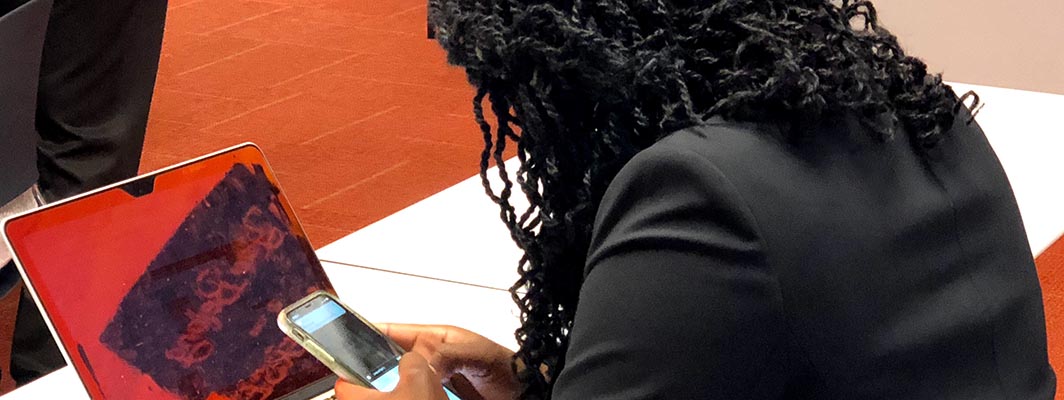Recent international studies in adult competencies indicate that six in 10 U.S. adults ages 18–65—around 118 million—perform at or below the lowest proficiency levels in problem solving in technology rich environments (
National Center for Education Statistics, 2016). This includes competencies such as using technology for effective communication with others, acquiring and evaluating information, and performing practical tasks.
While studies such as this highlight the need to increase technology integration in adult education classrooms and beyond, the goals and strategies for bridging the digital skills gap in response to such findings often don’t match learner realities.
Understanding the need for a realistic understanding of success, realities, and barriers related to technology integration within adult education programming, the Chicago Citywide Literacy Coalition (CCLC) conducted a technology assessment in Spring 2018 of 12 partner organizations within the Career Foundations Consortium, as a part of a grant funded by the JPMorgan Chase Foundation. The goal of the assessment was to analyze how technology is implemented in adult education classrooms throughout the city. Overall findings included:
- While providers indicate their present technology is mostly sufficient for meeting demands, they feel an increase in hardware and connectivity could grow their capacity.
- There is a need to increase the digital literacy levels of learners, but limited use of the proctored version of Northstar Digital Literacy Assessment—a tool made available to providers aimed at assessing learners’ digital skill levels.
- Learner access to computers at home is limited, while access to mobile phones is high.
Because of this, access to and use of online learning software—particularly those that are not mobile-optimal—tends to be limited to time spent within the learning facility.
- While there is limited use of paid learning software, there is widespread use of free online learning resources.
In response to these findings, CCLC convened a Digital Literacy Advisory Board (DLAB) that pulled from 14 partner organizations throughout the Chicago area. Starting in June of this year, DLAB has initiated projects across the city to address the trends and needs identified through the assessment. These include:
- Promoting Digital Literacy Assessment: The group is working to expand training for how to implement the Northstar Digital Literacy Assessment and share best practices systemwide, with the goal of increasing both the number of proctored administrations and the number of certificates earned by learners.
- Testing Mobile-friendly Learning: Through CCLC, providers have the opportunity to pilot a mobile-friendly literacy program—Learning Upgrade—as part of the nationwide Adult Literacy XPRIZE Communities Competition. In just two months, 117 participating students have completed 1,212 lessons, totalling 337 hours of independent learning. Data gathered by way of this pilot will help inform mobile-first strategies for technology integration moving forward.
- Developing a Resource Library: DLAB is evaluating how local organizations gather, organize, and share online resources to their learners. By collecting this information, the aim is to better support providers by Identifying and centralizing effective learning resources—such as DigitalLearn.org from the Public Library Association—that have proven effective with adult learners and sharing them out to provider organizations across the Chicago area.
As DLAB moves forward, we will evaluate these current projects and initiate future projects aimed at testing resources and scaling effective best practices. Through increased provider coordination and the development of a centralized hub of resources and information, DLAB aims to improve our communities by empowering Chicagoans through increased digital literacy.
To learn more about the DLAB and the participating organizations, click here.
